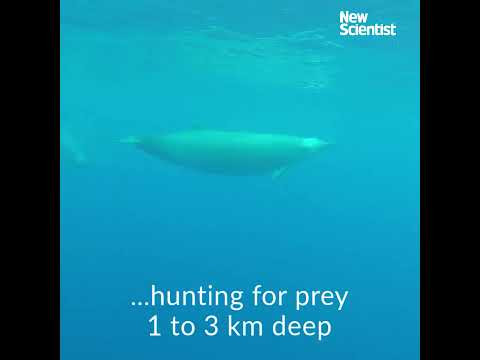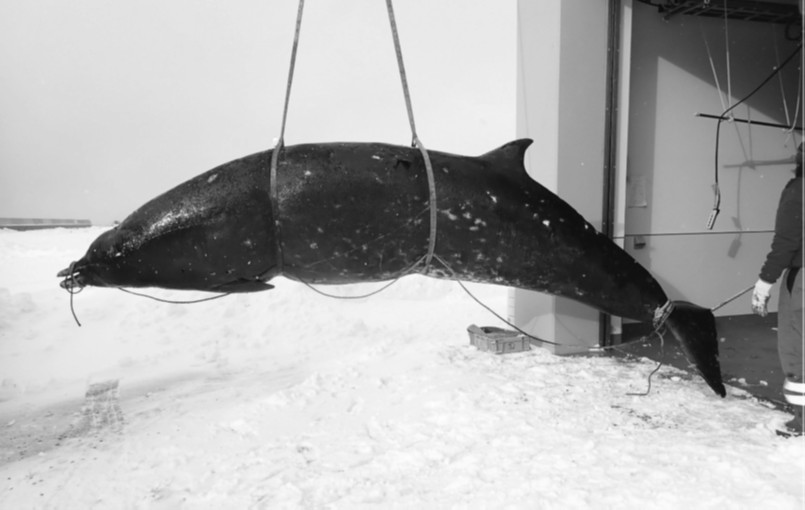A rare beaked whale was found stranded on the shores of Saint-Jean-de-l'Île-d'Orléans, Quebec, on Thursday morning. The discovery of the marine mammal, found lifeless and adrift off the south side of the island near Lévis, has raised concerns about the endangered species' presence in the St. Lawrence Estuary.
Beaked whales, known for their long, slender beaks, are not common visitors to the St. Lawrence Estuary. They are generally found in deeper, offshore waters, making this sighting a significant event. The population of beaked whales off the coast of Nova Scotia is estimated to be only 200 individuals, highlighting the rarity of this species.
The Mystery of the Beaked Whale's Journey
The reasons behind the beaked whale's unusual journey to the St. Lawrence Estuary remain unknown. While the exact cause of the stranding is yet to be determined, researchers are investigating potential factors, such as illness, injury, or changes in ocean currents.
Experts' Insights on the Whale Stranding
Robert Michaud, coordinator of the Quebec Marine Mammal Emergency Network, has shed light on the significance of this event. "It's not common to see beaked whales in the St. Lawrence Estuary. It's definitely an unusual sighting, especially considering their endangered status," said Michaud. "We are currently working to understand what might have led this whale to stray so far from its usual habitat."
Investigating the Whale's Cause of Death
The beaked whale will be transported to the Faculty of Veterinary Medicine at the University of Montreal in St-Hyacinthe for a necropsy. The examination will provide valuable insights into the whale's cause of death and overall health. This information can help researchers better understand the threats facing this endangered species.
Understanding the Whale's Health and the Threats it Faces
By studying the beaked whale, researchers can gain crucial information about the health of the population and identify potential threats to their survival. These threats may include habitat loss, pollution, entanglement in fishing gear, and noise pollution.
A Reminder of the Need for Conservation Efforts
The stranding of this rare beaked whale serves as a stark reminder of the importance of conservation efforts to protect marine life. We must continue to work towards safeguarding the habitats and resources of these animals, especially endangered species like the beaked whale. The St. Lawrence Estuary, a vital ecosystem for various marine life, requires ongoing conservation efforts to ensure its health and preserve its unique biodiversity.
A Delicate Ecosystem Under Pressure
The St. Lawrence Estuary is home to a diverse range of marine life, but it faces growing pressures from human activities. Pollution, overfishing, and habitat destruction are significant threats to the ecosystem's health. It's crucial to raise awareness about the importance of sustainable practices and conservation efforts to ensure the continued health and well-being of the St. Lawrence Estuary and its inhabitants.
Looking Ahead: Learning from the Stranding
The stranding of the beaked whale presents an opportunity to learn more about this rare and endangered species. Through research and ongoing conservation efforts, we can work towards safeguarding the future of these magnificent creatures and the St. Lawrence Estuary ecosystem they inhabit.
The discovery of the beaked whale has sparked a renewed focus on the importance of protecting marine life and understanding the delicate balance of our planet's ecosystems. By working together, we can ensure the long-term survival of endangered species like the beaked whale and preserve the beauty and diversity of our oceans.


















